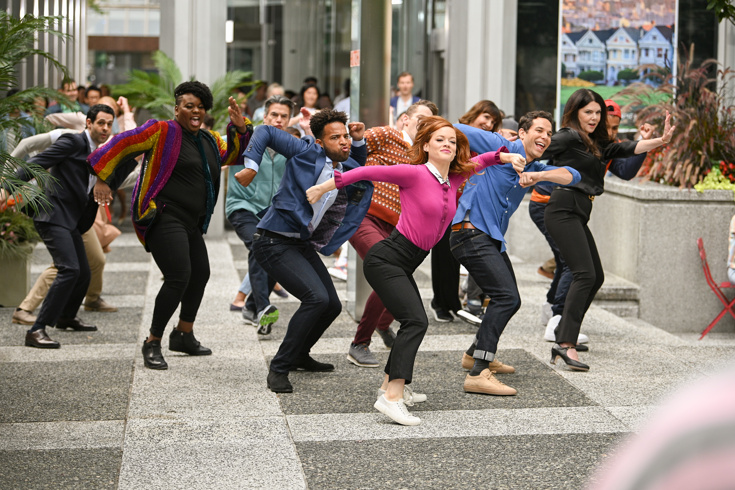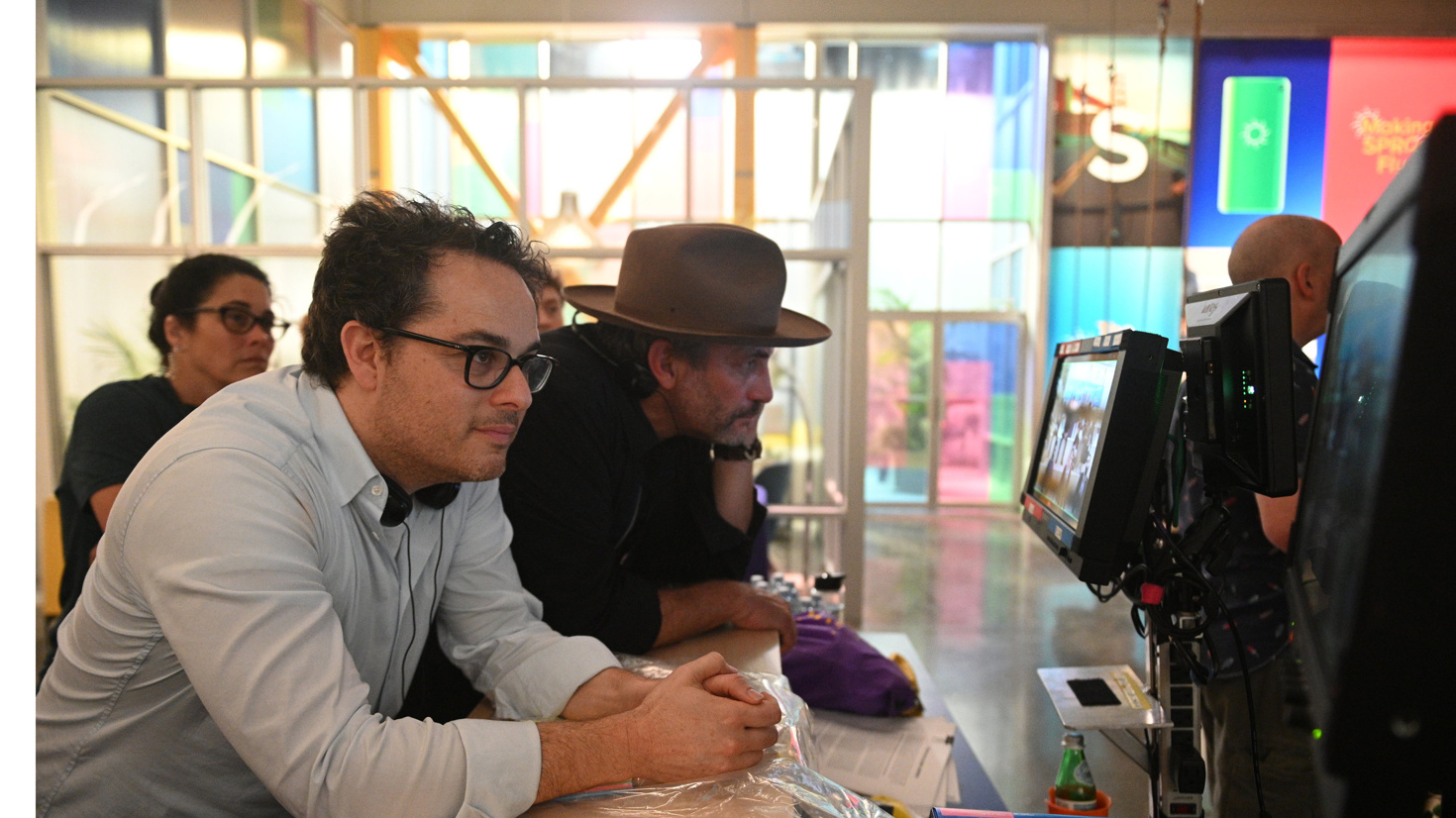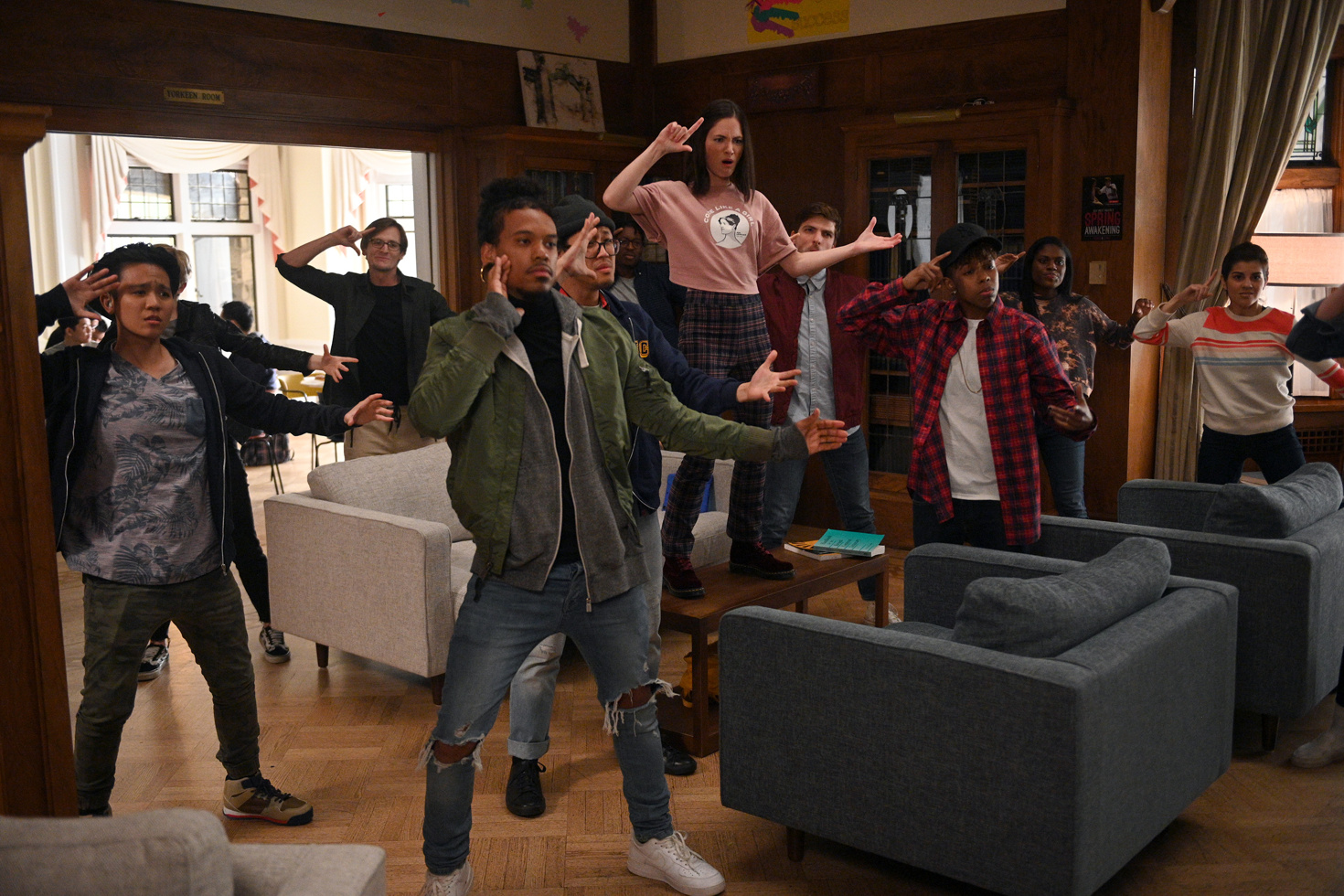Zoey’s Extraordinary Playlist Showrunner Austin Winsberg Is Bringing a Weekly Dose of Broadway to NBC


(Photos: Sergei Bachlakov/NBC)
Austin Winsberg may currently be working in television, but he will have you know that he is a big theater nerd. Winsberg, the showrunner for NBC’s Zoey’s Extraordinary Playlist, also wrote the book for the 2013 Broadway musical First Date. “When I get really roped up in TV and movie stuff, it’s hard to find the right project and the time to devote to theater stuff,” he admits over the phone from his home in Los Angeles. “I went to Stagedoor Manor in the Catskills, I was a theater major in college. My dream is to go back to Broadway; it’s just about finding the right project and the time to do it.”

But on his NBC show Zoey’s Extraordinary Playlist, Winsberg is able to feed his musical-theater brain. Winsberg considers the show a jukebox musical of sorts. The main character Zoey (played by Jane Levy) is given mysterious powers that allow her to hear the innermost thoughts of the people around her, in the form of a song (Zoey sums it up as, “I am X-Men meets The Voice”). The show may be on television but it’s all musical theater. “We have a rule for every song in Zoey: they always need to advance plot, reveal character or be funny, and that’s very much musical-theater rules,” says Winsberg. Zoey’s is in the middle of its first season and will finish on May 3 (Winsberg is “cautiously optimistic” that it will get renewed for season two).
Whenever possible, Winsberg wants to fit in as many theater actors as he can. Tony-nominated stage-and-screen actor Peter Gallagher plays Zoey’s father, Spring Awakening original cast member Skylar Astin is Zoey’s best friend, Once on This Island’s Alex Newell plays Zoey’s next-door neighbor. And they all sing. “I’m such a big musical-theater lover that anytime we can bring theater people into the show, I’m all in favor of it,” says Winsberg.
That statement applies to the guest stars, too. In upcoming episodes, Tony winners Renée Elise Goldsberry and Bernadette Peters will make an appearance and sing. And for episode nine of the show, airing on April 5 at 9:00pm, Winsberg brought in Deaf West Theatre, which was last on Broadway for the 2015 revival of Spring Awakening, to collaborate. Sandra Mae Frank, who played Wendla in that production, guest-stars as Abigail, a deaf college student with an overprotective father. And she gets her own musical number in the show, an instrumental of Rachel Platton’s “Fight Song,” in which she dances and performs the song using sign language, to show that she is not helpless and is capable of living on her own.
When his writers room came up with the idea for a deaf storyline, one of the first calls Winsberg made was to David Kurs, artistic director of Deaf West. “Instantly I thought of Deaf West because I had seen Big River, Pippin and Spring Awakening in Los Angeles,” explains Winsberg. “I was blown away by the way they integrate deaf performers into the show, the way they use sign language and choreography together; it just always feels like these beautiful pieces of art.”

Kurs worked with Zoey’s choreographer Mandy Moore to create a musical number that uses both dance and sign language. Winsberg wanted all of the performers in the song to be deaf performers, and that there be no singing. There was an ASL interpreter on set to facilitate communication between Moore and the actors. “It was a tall order because I wanted the emotion and what they were conveying simply through the physicality of their movement and facial expressions,” says Winsberg. He then added, “It was probably one of the hardest numbers Mandy had to do all season.”
He admits that it would have been easier if there were hearing performers in the number, “but I wanted to give voice and representation to deaf people,” Winsberg says. “It was important to what the number and episode was trying to say, to showcase these people and to be as authentic as possible in the process.”
Winsberg was inspired to create Zoey’s because of his father’s death; Gallagher in the show suffers from the same neurological condition that afflicted Winsberg’s father. So to him, the show may be musical and fantastical, but its core is about communication and empathy, especially for people who society overlooks. “Zoey’s father is based on my dad who couldn’t communicate at all in the last six months of his life, and I so desperately wanted to know what was going on in his head,” explains Winsberg, “And deaf people, too, anybody who has a disability or challenge, understanding what they're going through. So much of the show is about compassion and empathy and putting yourself into somebody else’s shoes.”
But for a show that’s so musical-theater inspired, there seems to be a lack of musical-theater songs in it. When asked why he’s not featuring more show tunes in his TV show, Winsberg says it’s because musical songs don’t always work outside of their musical context. “So many songs in musicals are synonymous with that musical and already built into the narrative,” he explains. “It’s important to me that if we were to do our own spin on that song, we’d have to change the meaning of it, or turn it on its head in some way so we’re not just telling it in the story the same way it was told in the musical.”
The other reason is purely financial: pop songs are cheaper to license than show tunes. “The most expensive song I went after all season was a song from Les Miz.” What song was it? “Castle on a cloud,” Winsberg laughs. “Cosette needs to be heard, everybody!”